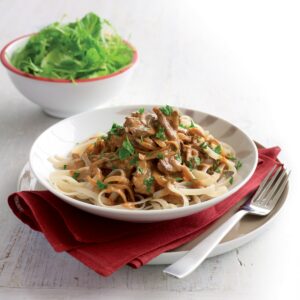
Psychotherapist Kyle MacDonald provides helpful tips for when you’re feeling the pressure of too many choices.
Anyone who has managed a large project, built or renovated a house, or organised a wedding will know that making a lot of decisions can be exhausting.
Have you ever come home tuckered out from work and felt unable to even make the simplest decisions? Or, have you found, halfway through a big project that you simply don’t care anymore, start making random choices or just give up?
Odds are you’re suffering from what psychologists call ‘decision fatigue’.
The most famous and most quoted study describing the decision fatigue effect was carried out in Israel. Researchers looked at judges’ decisions at parole hearings throughout the course of the day.
It turned out the chances of receiving parole were best first thing in the morning or just after lunch and, conversely, worst just before lunch, or at the end of the day.
Judges are professional decision makers, so decision fatigue can have a measurable effect on them.
The more decisions we are required to make, the more our mental capacity to make decisions can get exhausted, just like a muscle. And, just like a muscle, we need fuel to keep going.
The Israeli study also found that just after the judges’ mid-morning snack, the chance of getting parole went up again. Further studies have gone on to isolate this phenomenon, and have shown that making decisions burns glucose. So, if you are hungry, eating something that is good fuel, such as a handful of nuts, can potentially help your capacity to decide. If you’re not hungry, take a short break and give your brain a rest.
This is also why grocery shopping on an empty stomach isn’t a good idea. Shopping is a series of decisions and whether you make healthy choices or not can be affected. Just standing in the cereal aisle trying to decide which muesli to buy can be enough to cause decision fatigue. We are bombarded by choice. This might be why the candy is kept by the checkouts. When we’re decision fatigued, at the end of the grocery shopping, we may be less able to resist them.
Signs of decision fatigue
- foggy, stressed or feeling unable to think
- lack of caring, just wanting to make any decision so it’s done
- not being able to listen or engage in the process
- feeling like you just want to throw your hands in the air and walk away
- irritable, or angry, when asked to decide
So, what can we do about it?
- Try to plan to make big decisions first thing in the morning.
- Try to minimise distractions, and just focus on what needs to be decided.
- Make plans beforehand. Make a grocery list and stick to it. Or, shop online at a time when you’re not tired or hungry. See Beat decision fatigue: Your ultimate guide to meal planning.
- Sign up for a recipe/meal delivery service. These have all the ingredients and recipes decided for you, so you don’t have to think about what to have for dinner. You just need to cook it!
- Eliminate decisions. Set up habits or plans so you don’t have to decide. Pilots do this. They use checklists and flow charts (if this, then that) to cut down on decisions.
- Minimise your options by eliminating obvious ‘no’ decisions first. Fewer options = less energy required.
- Get other people’s input and opinions. They may not be as fatigued!
- Try not to make a lot of important decisions all at once, stagger them over time.
- Avoid doing things that require a lot of decisions or willpower at the end of the day, and on an empty stomach or late at night.
- And, if you’re not sure, sleep on it.
Lastly, it’s important to not give yourself a hard time about struggling with decision fatigue. This is a very human and universal problem. Self-compassion, not self-criticism, makes us stronger.
It also makes a difference if we feel like we’re doing things for reasons we can buy into and make our own, rather than just because we’re told to. Make goals and decisions based on your values and what’s important to you.
www.healthyfood.com










